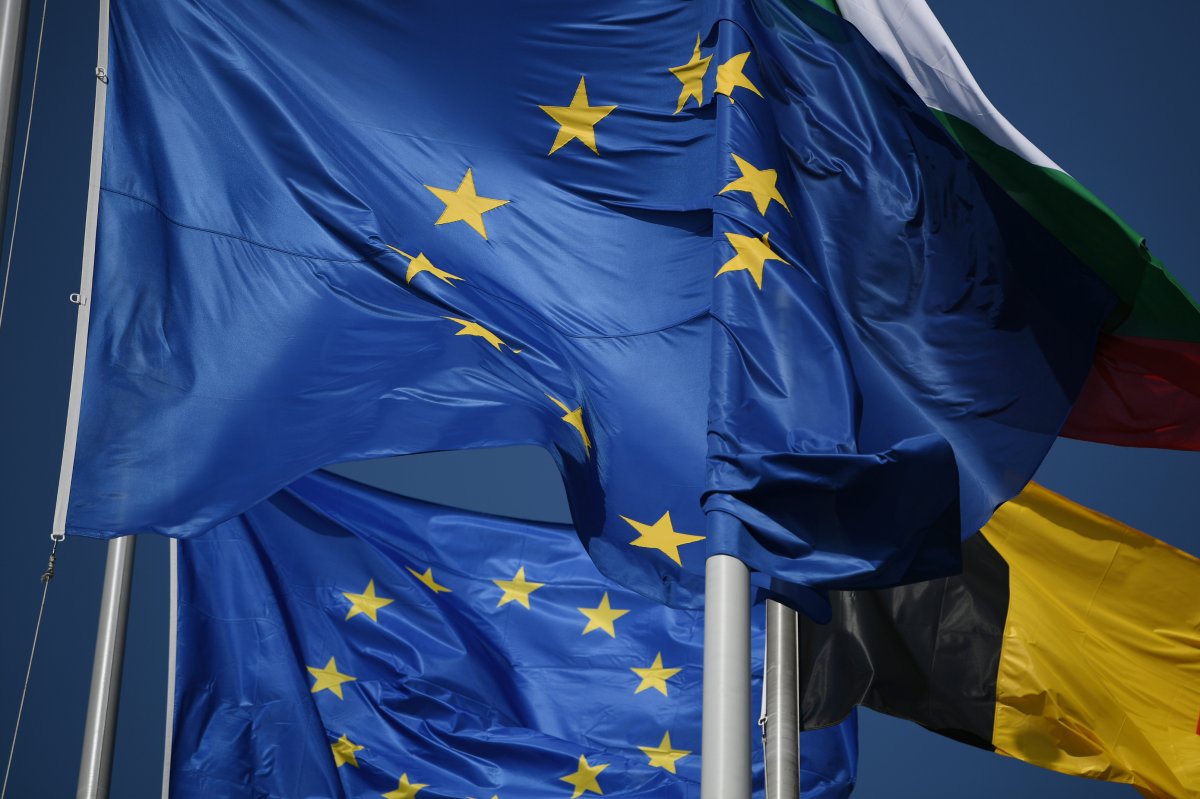The European Council — minus Hungary — issued a statement reiterating Ukraine’s right to self-determination, that Kyiv must be at Friday’s U.S.-Russia peace summit and urging U.S. President Trump not to negotiate away Europe’s security. File Photo by Patrick Seeger/EPA
Aug. 12 (UPI) — European leaders on Tuesday demanded that the Ukrainian people should determine their own future and that no peace deal with Russia could be decided without Ukraine at the table. Hungary disavowed itself from the calls.
Ahead of Friday’s U.S.-Russia summit to discuss Ukraine’s fate, leaders of 26 of 27 European Union nations said in a statement that viable negotiations must be within the framework of a cease-fire or easing of hostilities and warned of the threat the war posed to European and international security.
The leaders said that while they welcomed U.S. President Donald Trump‘s efforts to end the war and deliver a just and lasting peace, that would only be possible through respect for international law principles of “independence, sovereignty, territorial integrity and that international borders must not be changed by force.”
“The people of Ukraine must have the freedom to decide their future. The path to peace in Ukraine cannot be decided without Ukraine. We share the conviction that a diplomatic solution must protect Ukraine’s and Europe’s vital security interests.”
The statement came as Trump’s meeting with Russian President Vladimir Putin in Alaska, in which Trump has said territory could be traded, appeared set to go ahead without Ukrainian President Volodymyr Zelensky or any European representation.
Trump has said he was still weighing inviting Zelensky — something Putin has rejected — but that door appeared to close Monday after criticizing Zelensky’s track record at “a lot of meetings” over the past three-and-a-half years where “nothing happened.”
However, Trump pledged that out of “respect,” Zelensky would be the first person he’d call if he got a fair deal, followed by the Europeans, and that he anticipated a follow-up meeting that would be between Zelensky and Putin, or Zelensky, Putin, and himself.
EU foreign policy chief Kaja Kallas told the BBC she believed that for Putin, being photographed with Trump at a bilateral on U.S. soil at which he was likely to get sanctions delayed, was a win, but argued Zelensky’s presence was crucial for a clear U.S. success.
Trump has agreed to pre-meeting virtual talks on Wednesday, organized by German Chancellor Friedrich Merz, that will be attended by European heads and Zelensky.
The former head of Britain’s Foreign Office said the world should gird itself in preparation for likely abhorrent demands from Putin on Friday.
“Brace ourselves for some pretty outrageous Russian demands. Putin is going to ask for things that nobody else would concede — with the possible exception of Donald Trump,” said Lord Simon McDonald.
He warned that bringing an end to the conflict would be as drawn out as the war itself.
“The meeting is a milestone, but it doesn’t actually mean it will lead anywhere.”
The European Council statement pledged to work with the United States and other partners to provide the necessary economic and military materiel to keep Ukraine free, and maintain economic pressure on Russia.
They stressed that a secure Ukraine that could defend itself was intrinsic to future security guarantees, saying the EU and member states were ready to “further contribute” to those guarantees in line with their respective competencies and resources.
While the communique makes no mention of NATO membership, which would be the ultimate guarantee of security, the leaders reiterated their conviction that Ukraine’s rightful place was within Europe, vowing continued support for Ukraine’s path to EU membership.
The Hungarian administration of Prime Minister Viktor Orban, which refused to sign onto the statement, has been a vocal critic of Western support for Ukraine and has repeatedly attempted to block EU aid and defense packages for the country.
Brussels has responded by accusing Orban of appeasing Russia.
